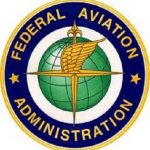As you know from reading our firm’s Pre-Flight Brief as well as other articles on this site, the FAA is actively investigating and taking enforcement against illegal charter operators. In the course of its investigations, the FAA has been contacting passengers and aircraft lessees involved with questionable flights.
In many cases an FAA inspector will send a “questionnaire” to the passenger(s) or aircraft lessee(s) asking multiple questions about certain flights. The response to the questionnaire, if any, can be critical to the outcome of the investigation.
How Does The FAA Know About The Flight(s)?
The flight(s) could have popped up on the FAA’s radar in several ways. An FAA inspector could have conducted a ramp check of one of the flights. Or someone could have “anonymously” reported to the FAA that the flight(s) were conducted as illegal charter flights – oftentimes a Part 135 operator on the airport.
Who Does The FAA Contact About The Flight(s)?
The FAA will initially ask the alleged operator to produce copies of all aircraft leases. The FAA will also ask to see copies of pilot services and/or management agreements. It may even ask for copies of all invoices issued in connection with either lease or pilot services/management agreements.
Next, based upon the documents produced, the FAA will start asking questions of the lessees and parties to the pilot services/management agreements. These questions seek information the FAA needs to determine who had operational control of the flights.
Why Does The FAA Ask For This Information?
Simple – the FAA is trying to determine how the aircraft was operated on the flights in question. And, more importantly from an enforcement perspective, whether those flights were conducted legally.
What Questions Does The FAA Ask The Passenger(s) Or Lessee(s)?
Here are a few of the questions that could be asked, with my comments following a few of the questions in parenthesis. This isn’t an all-inclusive list. Sometimes the list is longer. Other times it is shorter. The number and type of questions asked are determined by the circumstances of each case. But they are all aimed at establishing who was actually exercising operational control over the conduct of the flight.
- Were you a passenger on the flight(s) in question?
- Do you or your company have a lease agreement for use of this aircraft or any other aircraft?
- Who arranged the flights in question?
- Have you arranged other flights?
- How were those flights arranged?
- How did you determine which pilot to use?
- How did you determine if the pilot you chose met the legal requirements to operate the flight?
- Were you provided a list of pilots?
- Did the lessor suggest or recommend a particular pilot or pilots?
- Were you aware that you could choose any pilot who met the qualifications to operate the flight?
- Has the lessor or pilot billed you or your company for flights?
- Was the pilot and aircraft acquired as a single source, or were they acquired separately?
- Who paid for the fuel for the flights in question?
- Who directly pays (paid) for the airport fees, parking/hangar costs, food service, and/or rental cars?
- Who determines weather/fuel requirements?
- If the aircraft were to suffer a turbine blade failure in flight, who would be responsible for the repair and cost of repair of that engine? Could be over $100k (A passenger isn’t likely going to know the answer to that question, let alone whether a repair would cost $10 or $100,000. And although an aircraft lease would/should identify who is responsible for repairs, it may depend upon the nature and cause of the failure. So, the lessee may not necessarily know the answer to this question either.)
- Who decides when/where maintenance is accomplished, and who directly pays for the maintenance?
- Who make the decision to initiate, conduct, and terminate flights?
- Who makes the decision to accept flight requests for the aircraft in question?
- How were you made aware of the pilot and this aircraft?
- Were you able to choose any passengers you wanted to go on the flight?
- Could anyone going to the same destination pay a dollar amount and get on the flight?
- Were you ever told that this was a “charter flight”?
- Were you made aware that you were separately leasing an aircraft and acquiring a pilot? (Nothing like a leading question to suggest the answer to the passenger(s)/aircraft lessee(s).)
- Who was responsible for the operation of the flights in question? Fuel, maintenance, pilot qualifications, and weather?
- What additional flights did you fly with the lessor or pilot in this or other aircraft? Destination and approximate dates?
- If, during a flight in which you were the lessee of the aircraft, a required inspection was overflown, and a civil penalty was assessed by the FAA, who would be held responsible for this penalty. Penalties can exceed $11,000 per flight in violation of FAR’s. (Nothing like trying to scare/intimidate the lessee(s). And, again, even if an aircraft lease identifies who may be responsible for a civil penalty, it may still depend upon the circumstances. So, the lessee may not necessarily know the answer to this question either.)
- Who is responsible for the safe and legal operation of the aircraft to include the pilot’s certification and currency, the aircraft’s airworthiness status, and any violation of the Federal Aviation Regulations? (Another question a passenger may not be able to answer unless perhaps an operational control briefing was given to the passenger before the flight.)
Do You Have To Respond To The FAA?
 You are not obligated to respond. And the FAA may not hold a refusal to respond against you. However, in my personal opinion, it is rude not to respond. A simple response confirming receipt of the FAA’s letter and indicating you do not have responsive information is acceptable.
You are not obligated to respond. And the FAA may not hold a refusal to respond against you. However, in my personal opinion, it is rude not to respond. A simple response confirming receipt of the FAA’s letter and indicating you do not have responsive information is acceptable.
Unfortunately, that will likely not be the end of the FAA’s inquiry. The FAA has the authority the authority to issue subpoenas. It will do so if it needs to obtain testimony and/or documents from an uncooperative witness. And you could expect the FAA attorney taking the deposition to ask these same, or very similar, questions.
On the other hand, it might be beneficial to respond to the questionnaire to set the record straight – one way or another. This is especially true when the evidence shows that the lessee was, in fact, the party exercising operational control over the flight(s).
Alternatively, if the flights were truly illegal charter operations, it may be in the lessee’s best interest to explain that the lessee was not actually responsible for the flight. In any event, any responses to the FAA’s questions should be truthful, measured, and accurate.
Conclusion
Passengers who are flying on private aircraft should understand the nature of the flight. Is it a legitimate Part 91 flight? If so, they must be able to convey that information to an FAA inspector if or when asked.
If the flight is conducted under an aircraft lease, the lessee, as operator of the aircraft, needs to make sure the lessee’s flights are conducted legally. That way the lessee will be able to correctly answer the FAA’s questions.
Understanding the questions the FAA may ask in connection with an illegal charter investigation is beneficial to both passengers on private aircraft as well as aircraft lessees. Forewarned is forearmed and can help prevent confusion and, perhaps, an unwanted investigation.


